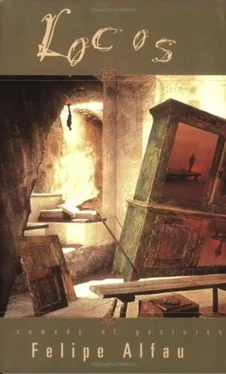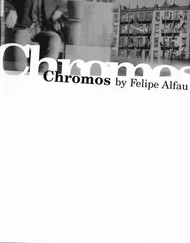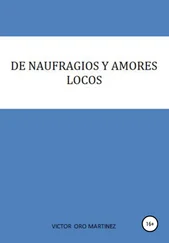“This is a very old piece of furniture. It comes from the Orient and belonged to an ancestor of Olózaga, a Chinese prince whose only daughter also. ”
“Why, Tia Mariquita,” interrupted Dr. de los Rios, “this seems to me a common Spanish bargueño , and not at all old; you know, that good varnished Spanish pine. ”
Tia Mariquita turned on him indignantly:
“That is nothing but envy, you are always trying to ridicule the most sacred things.”
“Don’t get mad, Tia Mariquita, you know I always like to tease you.”
She turned to me — a decided concession:
“Do not believe him. He is always joking. It is really a very old Oriental work of art.”
Although I did not see anything Oriental about it, I nodded respectfully.
In the street Dr. de los Rios asked me:
“Do you know why she insisted that we should not mention that only-child-grave business to Olózaga?”
“Because it grieves him, I suppose.”
“Of course not. It is because he does not know anything about it. It is one of the stories she has worked out all by herself. She is as sterile as a mule and could not have a child if she had lain with a bishop.”
“And what is that about the Chinese ancestor of her husband?”
“I forgot to tell you. Olózaga seems to have Oriental blood in him of some kind. I don’t know whether Chinese or something else. You will see by his features when you meet him. Perhaps that is also imagination. He was a bit given to the romantic, too, and I believe he has encouraged her disrespect for truth.”
I reminded Dr. de los Rios that he was supposed to call on a patient.
“I just said that in order to get away. Didn’t you hear her say that she was going to read a play? I could not stay and listen to that thing again.”
“Have you heard it already?”
“A thousand times.”
“Is it any good?”
“It is ghastly, but she persists in being a playwright.”
The Theater
And then I learned that the play in question was what brought about her marriage with Olózaga.
He was in Madrid at that time backing up cheap shows. He met her somehow. She showed him the play and he produced it. The play was so bad that everybody began to speak about it as the worst play they had seen. Everybody went to the theater to have a good time laughing at the play. They called the authoress to the stage and applauded long and cheered and she came out delighted, taking it all as a real tribute to her genius. Perhaps it was in a way. In that manner the house was full every night and they made money. One day Cendreras the secretary told Olózaga that the public was just ridiculing his wife and having a good time at her expense, but Olózaga told him that his wife was happy and they were making money, so why not overlook that trifle?
After that they went into the theater business and toured Spain in vaudeville. Everything was done in the cheapest and most rampant style. They gathered a bunch of starving actors who would perform for next to nothing and went on that way. There were one or two one-act plays in which Tia Mariquita played. The public continued to mock her and applaud and pay. She had a collection of Spanish shawls and every time the public called her she appeared in a different one and the public made it its business to exhaust the supply of shawls, until she appeared again with the same one and then someone would cry: “We have seen that one already.” Then she felt insulted and called the public cochons , a word she had taken from the French and thought very disdainful. Cendreras told Dr. de los Rios all these things.
One day they were in Bilbao and decided to present her play again. It had been rearranged as a musical comedy with music by a certain Paroddi, an Italian they had accumulated in their theatrical life. It was a sordid performance. The leading lady had been taken sick and Tia Mariquita had to take her place. They could not find an orchestra cheap enough and they hired a piano out of tune. The singers in their turn were out of tune and out of time with the piano. The settings did not go with the play and shook threateningly. At the end of the second act, half of the settings came down and Tia Mariquita had a fit in the middle of the stage. It was a disastrous performance. The public they met there were not so patient and began to hiss and pound their feet on the floor. Tia Mariquita, who had recovered, became furious at this behavior and showed the audience her middle finger, a vulgar action she had learned from her theatrical crowd and the offensive meaning of which she did not know apparently. This enraged the public, someone threw something at the stage and then the storm broke. The people began to yell and call her all kinds of names. They went out into the street demanding their money back and called out for the drawers of Olózaga. I could never get the meaning of this last demand.
At the stage door they met Olózaga. He discharged a terrible blow at the first one who approached him. At that time he must have been over sixty years old. The mob rushed at him and he smashed right and left and with the poor aid of Cendreras succeeded in holding the mob back until the police came. Poor Cendreras was badly hurt in the fight, but Olózaga did not have a single scratch and was only exhausted. More than sixty years is not the age to face a furious mob.
“And what did they do after that?”
“Well, they quit the theater and settled in Madrid. Since then he has attempted several other business ventures but with little success. He is quite old now, you know, and is beginning to slow down. It is the action of time. No matter how much vitality a man may have, time will get him sooner or later. Everything decays.”
We spoke longer about Olózaga and Tia Mariquita and then Dr. de los Rios related to me some of the businesses into which the former had gone.
Business of Señor Olózaga
One day I was sitting at a café in La Plaza de Cataluña in Barcelona. My attention, as well as that of several passersby and people sitting in the café, was attracted by a strange group that was advancing across the plaza.
There were six men dressed in a fantastic manner. They wore jackets with broad green and yellow stripes and also high hats with the same kind of stripes. They were coming toward the café.
When they were nearer, I noticed a man walking in front of them who was doing all he could to shrink within his clothes. He was literally looking for a hole in the ground that would swallow him.
At last the poor fellow dashed across and sat at a table in the café. The six men followed very seriously and sat at a table next to him and remained there silent and motionless. I asked a waiter what it was all about.
“They belong to an agency for the collection of delinquent accounts. It has been working for the last month or so.”
The agency worked as follows:
If a person had not paid a debt, the matter was placed in the hands of the agency. Immediately six men dressed in the manner described posted themselves at the door of the victim’s house. The moment the debtor came out they followed him closely. If he took a carriage, they took another carriage. If he visited someone, they waited at the door until he came out and then resumed their activities. They followed him everywhere, constantly, until the whole thing became a nightmare. The most stubborn debtor would finally give in to this persecution and, in order to get rid of this pest and public ridicule, pay his debt and be immediately left in peace. No one had been known to last out a week. The agency pocketed part of the debt, and that was the business.
Plainly the man who had sat at the café was ill at ease. He shifted on his chair and turned his back to his tormentors. People were already gathering and pointing at the men and at the debtor, and laughing.
Читать дальше












